The 24th
LaureatePainting
Cai Guo-Qiang
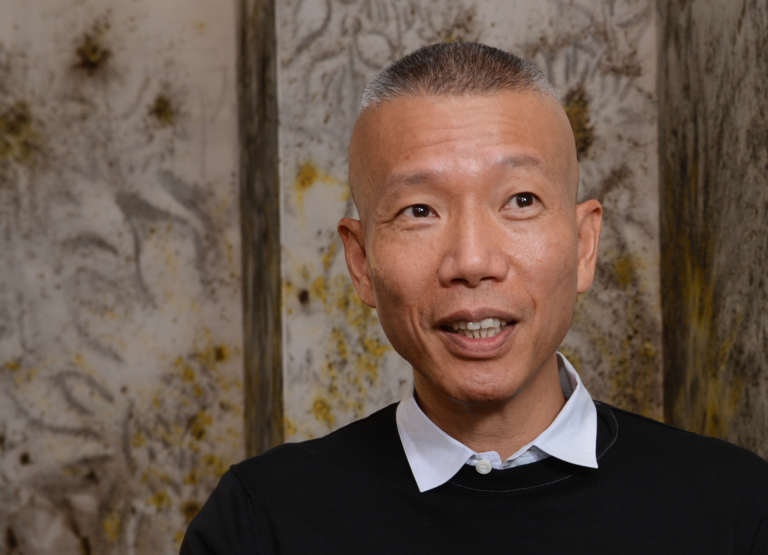
Cai Guo-Qiang is one of the most high-profile Chinese contemporary artists today. He is known for his dynamic work,in particular for his “gunpowder drawings” works created by exploding gunpowder rather than paint.By transforming destruction to creation,his large-scale projects question human existence and nature.
After studying stage design at the Shanghai Theatre Academy and in search of more creative freedom,he moved to Japan in 1986 where he was based until 1995.
He realized the Project to Extend the Great Wall of China by 10,000 Meters (1993),using fuses and gunpowder. He also realized The Century of Mushroom Clouds (1996),making small mushroom clouds with gunpowder at the Nevada Test Site.
In 2005,he was the curator of the first China Pavilion at the Venice Biennale. At the Opening Ceremony of the 2008 Beijing Olympic Games,he realized Footprints of History,fireworks over the skyline of Beijing. He also realized Black Fireworks (2008) at the riverside park near the Atomic Bomb Dome in Hiroshima.
He lives and works in New York. He is the first Chinese national to receive the Praemium Imperiale.
Biography
Cai Guo-Qiang is known for his dynamic gunpowder-based drawings and performances. He says,“An artist should transcend the times. By using gunpowder that has such a primitive,natural power I have created a dialogue with an invisible world and with eternity.”
Cai was born in Quanzhou,Fujian Province,China. Growing up,he was influenced by his father who loved art ―particularly painting― and the Cultural Revolution he witnessed as an adolescent. Living in a coastal town that had once prospered as an international trade center also greatly effected his creativity. He recalls,“There,all kinds of cultures co-existed,Chinese,Western,Islamic,Buddhism,and so on. The open atmosphere of my hometown greatly effected my creative activities.”
After studying stage design at the Shanghai Theatre Academy,he moved to Japan in 1986 in search of more creative freedom. After the Tiananmen Square protests in 1989,he took a post as a research student at Tsukuba University,Japan.
From the beginning,he worked with gunpowder to create explosions on canvas but gradually moved towards exploring large-scale outdoor explosions that were often categorized as earthworks because of his use of the natural landscape as his canvas. In 1992 he realized Fetus Movement Ⅱ : Project for Extraterrestrials No. 9,an explosion event at a military base in Germany. A year later he gained worldwide attention with his Project to Extend the Great Wall of China by 10,000 Meters: Project for Extraterrestrials No. 10.
In 1995,Cai moved to New York,where he realized The Century with Mushroom Clouds: Project for the 20th Century series (1996) by making small explosions at symbolic sites around the United States.
Despite being based in New York,Cai maintains close relationships with both China and Japan. In 1998 he realized the Cultural Melting Bath,a work permanently installed at Naoshima Contemporary Art Museum,Japan that invites visitors from all over the world to take a dip together in the “Jacuzzi” bath. He also has a strong connection with Iwaki City,Fukushima: for nearly 20 years,he has collaborated with the community and made works such as Reflection ―A Gift from Iwaki by using shipwrecks of fishing boats from the city.
Cai was the curator of the first China Pavilion in 2005 at the 51st Venice Biennale and the Director of Visual and Special Effects for the opening and closing ceremonies of the 2008 Summer Olympics in Beijing. At the opening ceremony,his Footprints of History consisted of 29 giant “footprints” that flew over the Beijing skyline and ended at the Bird’s Nest Olympic Stadium,confirming fireworks status as an art form.
He regards himself “an ordinary boy” saying,“many people empathize with the dream and joy a boy expresses.” Perhaps it is his child-like,free and playful spirit that is the source of his unique projects. He is the first Chinese national to receive the Praemium Imperiale.
Chronology
Cai Guo-Qiang: From the Pan-Pacific,Iwaki City Art Museum,Fukushima,Japan
Director of Visual and Special Effects for the opening and closing ceremonies of the Summer Olympics and Paralympics,Beijing,China
Black Fireworks: Project for Hiroshima,near the Atomic Bomb Dome,Hiroshima City,Japan
Cai Guo-Qiang: Spring,Zhejiang Art Museum,Hangzhou,China
-
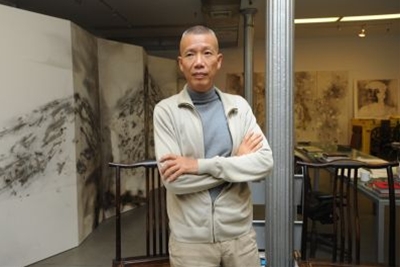
At his studio in New York
-
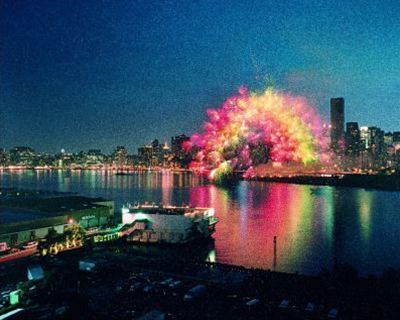
Transient Rainbow, 2002
-
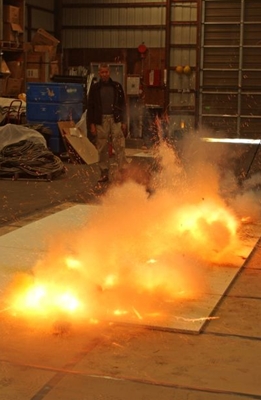
Bird of Light, 2004
-
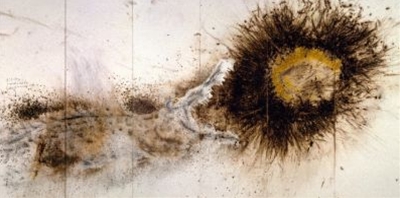
Crocodile and Sun, 2007
-
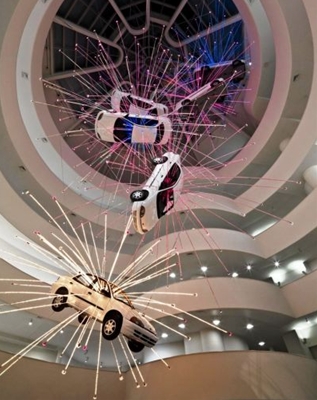
Inopportune: Stage One, 2004
-
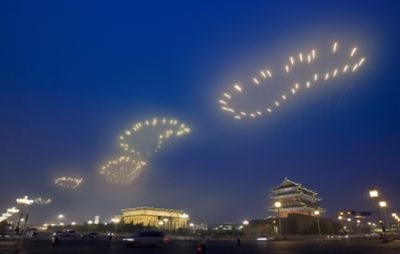
Footprints of History

